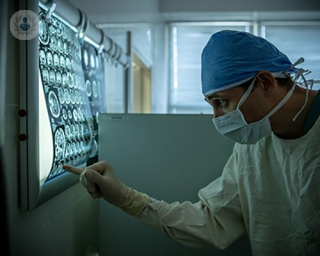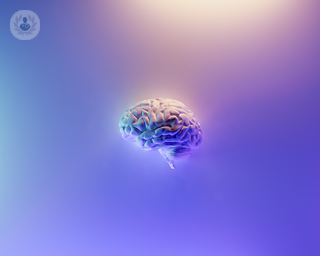
By Professor Sotirios Bisdas
24.04.24
Neurology
Navigating brain tumour recovery
Neuroimages post-treatment are like before-and-after snapshots, vital for monitoring brain tumour impact. Neuroradiologists face the challenge of distinguishing tumour relapse from treatment effects. In his latest online article, Professor Sotirios Bisadas explores advanced imaging techniques, follow-up frequency, and the role of technology and skilled neuroradiologists in accurate diagnosis.
















